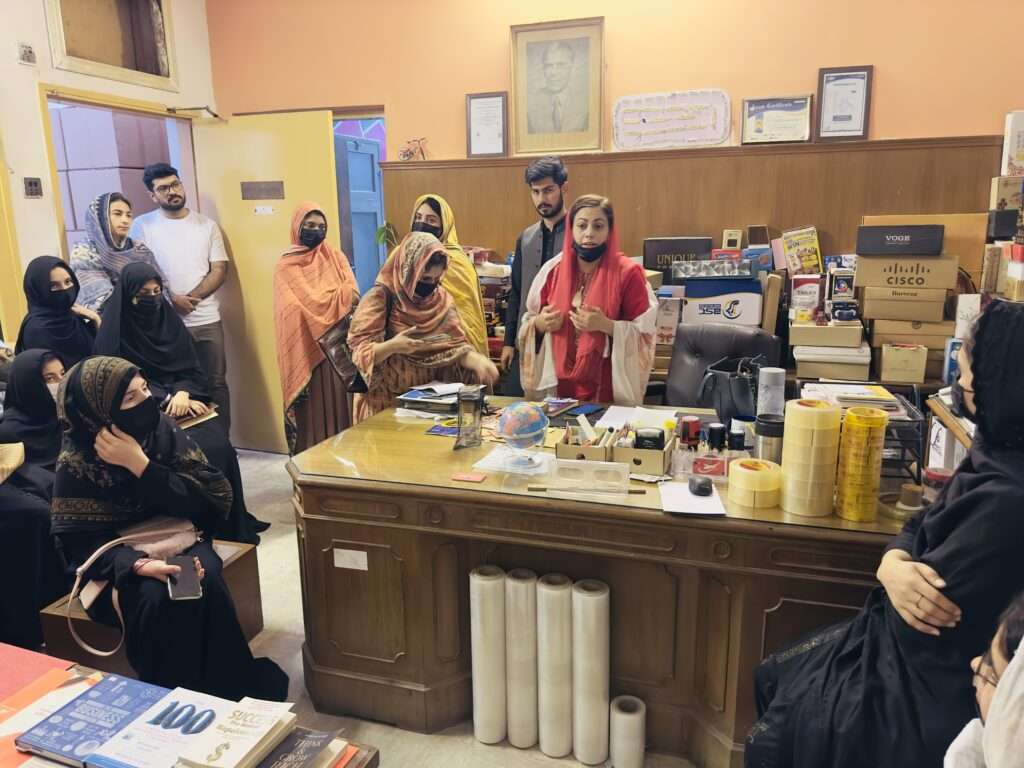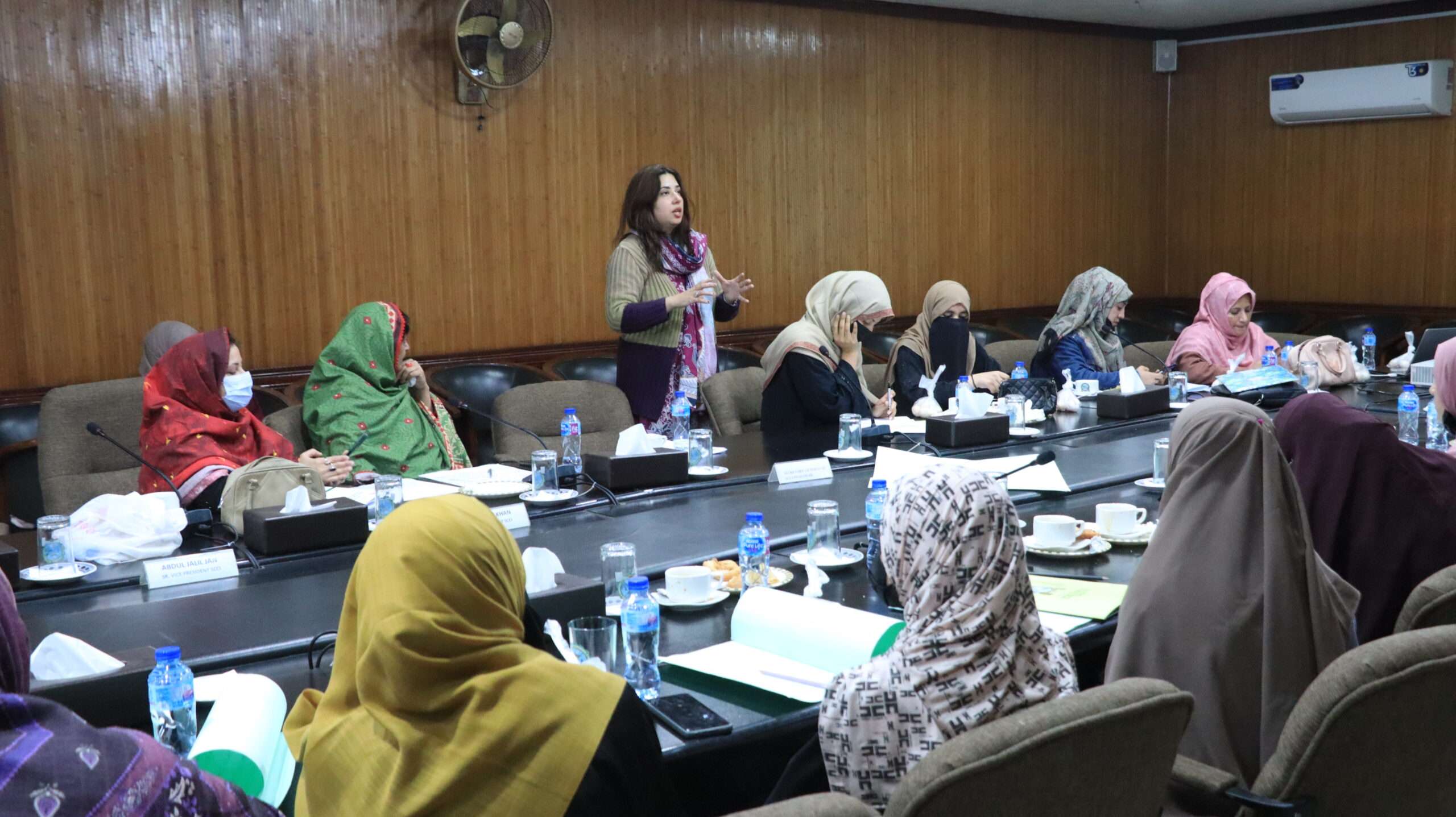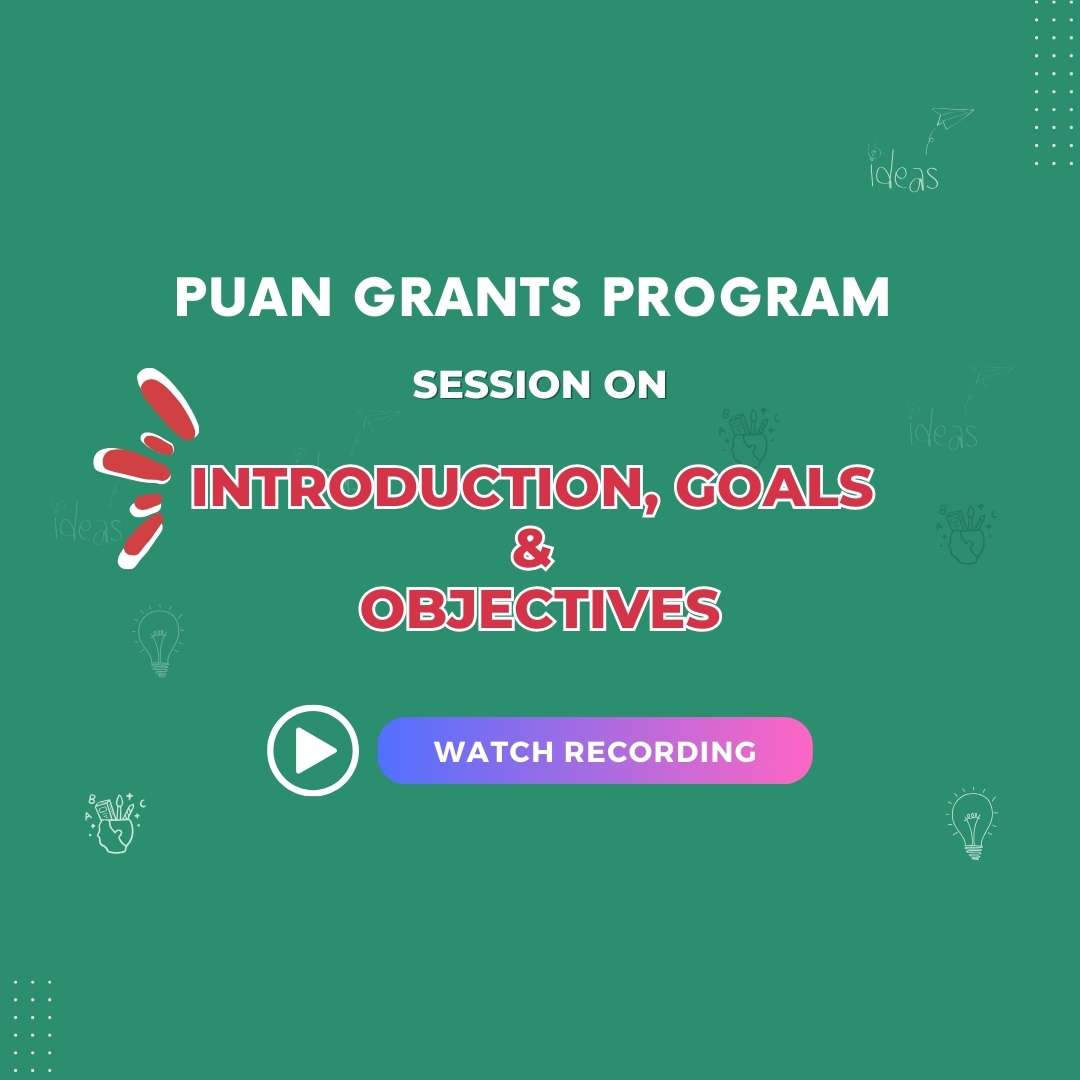A region brimming with hidden talent, where women want to become financially independent and nurture dreams of starting businesses but lack the platform to take flight. This is the reality of many rural areas of Pakistan in general and newly merged districts (NMDs) in particular. NMDs are a region marred by economic hardship and limited opportunities. However, amidst these challenges, the SheLeads project under Alumni Small Grant (ASG) spearheaded by Roohullah Khalil, a passionate PUAN alumnus, came out as a breath of fresh air. The project was funded U.S. Mission to Pakistan in partnership with Pakistan-U.S. Alumni Network (PUAN).

Roohullah, a familiar face in the social impact arena, isn’t new to empowering communities. Having championed projects like “Sports for Peace,” he understood the unique struggles faced by women in the NMDs. Limited access to knowledge, networks, and resources often confined their entrepreneurial aspirations.
SheLeads aimed to rewrite this narrative. The project meticulously selected 100 women entrepreneurs, each with a burning desire to succeed. Instead of a one-size-fits-all approach, SheLeads offered a holistic experience. Capacity-building workshops became classrooms where participants honed their business acumen, learning everything from marketing to financial management.
However, knowledge and sessions alone were not enough. SheLeads took these women on exposure visits as well, opening their eyes to a world of possibilities. Remember Sakeena Afridi, the 27-year-old with a dream of revolutionizing plastic recycling, her visit to a local, female-run industry wasn’t just sightseeing; it was a turning point. Witnessing a successful entrepreneur leading the way, Sakeena envisioned her own name on a similar marquee. This wasn’t just a visit; it was a mentorship waiting to blossom.
The ASG SheLeads also facilitated crucial connections with the women’s Chamber of Commerce. Khadija Afridi, a 22-year girl with powerful business idea, finally found the guidance she craved. Connecting with industry experts and academics through SheLeads helped her refine her concept and gain a fresh perspective. The chamber, recognizing the immense potential of these women, offered them a roadmap to membership and its associated benefits.
Roohullah, reflecting on the project’s success, highlights the unwavering support of the U.S. Mission and PUAN. “Their belief in this project empowered me to empower these women,” he says.
SheLeads wasn’t just about workshops and visits; it was about creating an enabling future. It was about giving these women the confidence to step out of the shadows and showcase their talent. It was about building bridges between them and the resources they needed to thrive. As these women translate their dreams into realities, SheLeads stands as a testament to the power of collaboration and the transformative potential that lies within each of us.





